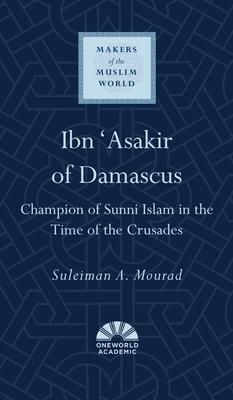
Publish Date |
September 14, 2021 |
Category |
Religion / Islam / History History / Middle East |
Price |
$40.00 |
ISBN: 9780861540471
Format: Hardback
Pages: 160
Publisher: Oneworld Publications
Published: September 14, 2021
‘Hyperbole notwithstanding, to understand the Levant’s sense of self and perception of history, one should look no further than Ibn ‘Asakir, whose intellectual efforts rehabilitated the past to canonise a blessed Sunni and Crusader-free Bilad al-Sham. Suleiman Mourad garners his intimate knowledge of the scholar, his numerous and voluminous works, and the contemporary intellectual and political context to expose the significance and extent of the phenomenon of Ibn ‘Asakir through to the end of twentieth century in the Syrian Republic.’